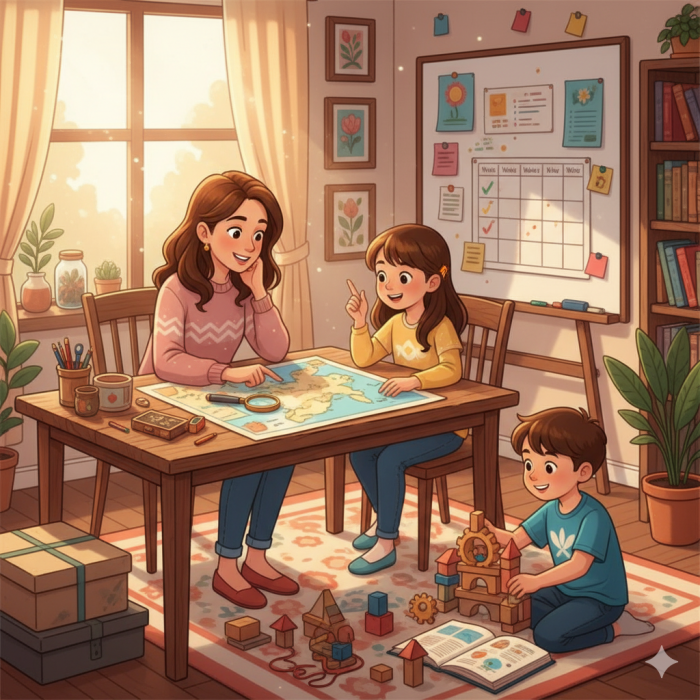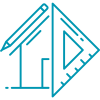Obviously, if you are just starting to homeschool your children, one of your biggest worries will be how you are going to ensure your children are learning everything that they are meant to and how you can ensure they achieve every ”milestone’.
The first thing you need to decide is which/who’s milestones you are going to use?

Different countries have different milestones for the same age groups and different countries have different school starting ages.
The second thing you need to decide is what is really important for you and your child/children?
For some parents academic success is everything, they push their children from an early age and send them to the top private schools. Sometimes this works well and the child thrives with this kind of upbringing, but it can also mean some children miss out on a ‘normal’ childhood and actually fall behind later in life.
Other parents just want to do what will make their children happy. These parents opt for more of a child-led learning approach and allow their child to pursue their own interests and qualifications. Each day is different and activities and goals change to suit the child.
As always there is always a middle ground, where you can take cues from your child as to what they are interested in and how much academic pressure they can handle.
Please note, whatever age your child is, you don’t have to make these decisions all in one day or one week.
Particularly if your child is under 13, there is no rush to choose academic subjects or ‘area of expertise’.
Here are some stages of education for children that might be useful:
0 – 7: The first seven years of a child’s life should be filled with a lot of outdoor and indoor play.
The UK government has a lot of milestones for young children, particularly at the age of 5 and the mainstream education here does a lot of testing.
There is evidence to show that this system is not beneficial for every child.
In Finland they do not start formal schooling until age 7 – I write more about this here
7 – 14: This is where more formal structure can be added, however this should still include lots of outdoor play and allowing a child space, time and an enviroment where they can pursue their interests and learn about the things which they are most curious about.
14+: If things went well in the first stage, by now your young adult will know what he/she enjoys and wants to pursue further. Mastering some core topics and skills and thinking about the world of work and business would be beneficial at this age. Lots of independence and allowing your young adult to find their path, with you as more of a guide and friend.

Comments